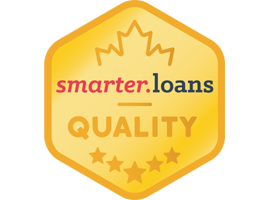Managing multiple debts can be overwhelming, especially when they come with varying interest rates and payment schedules. A debt consolidation loan offers a way to combine multiple debts into a single loan with one monthly payment, potentially simplifying your finances and even saving money on interest. This article provides an overview of how debt consolidation loans work, their benefits and drawbacks, and what to consider before applying.
What is a Debt Consolidation Loan?
A debt consolidation loan is a personal loan used to pay off multiple debts. The borrower receives a lump sum, which they use to pay off existing balances, leaving only one loan to manage. This type of loan can be particularly useful for people juggling multiple high-interest debts, such as credit card balances, medical bills, or personal loans.
Debt consolidation loans are generally unsecured, meaning they don’t require collateral. However, lenders assess eligibility based on credit score, income, and debt-to-income ratio to ensure borrowers can manage the payments.
How Does a Debt Consolidation Loan Work?
The process of debt consolidation involves taking out a new loan with a fixed interest rate and term, then using that loan to pay off multiple existing debts. Here’s how it works step-by-step:
- Apply for a Consolidation Loan: Find a lender and apply for a loan that covers the total amount of your existing debts.
- Use the Loan to Pay Off Debts: Once approved, use the funds to pay off your individual debts. This leaves you with only the new loan to repay.
- Make a Single Monthly Payment: Instead of multiple payments, you’ll now make a single payment to the new lender, often at a fixed interest rate, simplifying the repayment process.
Types of Debt Consolidation Loans
Debt consolidation loans come in a few forms, each with its own features:
- Unsecured Personal Loan: The most common type of consolidation loan, where no collateral is required. These loans typically depend on credit score and income.
- Secured Loan: A consolidation loan that requires collateral, such as a car or home, to reduce the lender’s risk. These loans may have lower interest rates but carry the risk of losing the asset if payments aren’t made.
- Home Equity Loan or Line of Credit (HELOC): Homeowners can use the equity in their home to secure a consolidation loan. This type usually has lower interest rates, but the home is at risk if the borrower defaults.
- Balance Transfer Credit Card: Some credit card companies offer promotional balance transfer cards with low or 0% interest for a limited period. Transferring balances to a single card can reduce interest costs, but requires disciplined repayment before the promotional period ends.
Pros and Cons of Debt Consolidation Loans
Like any financial product, debt consolidation loans come with both benefits and potential drawbacks. Here’s a breakdown to help you decide if it’s the right choice for you:
Pros:
- Simplified Finances: Consolidating multiple debts into one loan can make budgeting and managing payments easier.
- Potential Interest Savings: If the new loan has a lower interest rate than the average rate of your existing debts, you can save money over time.
- Fixed Repayment Schedule: With fixed monthly payments, you can create a clear plan to pay off the loan over a set period, reducing debt gradually.
- Credit Score Improvement: Timely payments on the consolidation loan can improve your credit score, as it demonstrates responsible debt management.
Cons:
- Fees and Costs: Some consolidation loans have origination fees or prepayment penalties. Balance transfer credit cards may also charge transfer fees.
- Longer Repayment Terms: A lower monthly payment may come with a longer term, increasing the total interest paid over time.
- Risk of Collateral Loss: Secured loans and home equity-based loans put your assets at risk if you fail to make payments.
- Temptation to Accumulate More Debt: After consolidating, some borrowers may feel tempted to take on new debt, which can worsen financial stress in the long run.
Eligibility Requirements for a Debt Consolidation Loan
Each lender has its own criteria for debt consolidation loans, but here are some common requirements:
- Credit Score: A higher credit score can increase approval chances and help secure a lower interest rate. Borrowers with poor credit may face higher interest rates or have limited options.
- Debt-to-Income Ratio (DTI): This ratio measures the amount of monthly debt relative to income. A lower DTI indicates a borrower has more income available to cover new debt.
- Proof of Income: Lenders need assurance that you can make regular payments, so they’ll typically ask for proof of stable income.
- Employment History: A steady employment record can improve approval odds, as it suggests income stability.
Steps to Apply for a Debt Consolidation Loan
- Review Your Financial Situation: Calculate the total amount of debt you want to consolidate and determine whether a consolidation loan will help you save on interest or simplify payments.
- Check Your Credit Score: Understanding your credit standing will give you a sense of the rates you might qualify for and allow you to correct any inaccuracies on your credit report.
- Research Lenders: Compare lenders, including banks, credit unions, and online lenders, to find the best terms. Look for those offering competitive rates, reasonable fees, and flexible repayment options.
- Submit an Application: Complete the application and submit the required documentation, such as proof of income, identification, and financial statements.
- Use the Loan Funds to Pay Off Debt: Once approved, use the loan proceeds to pay off your individual debts, leaving you with a single monthly payment.
- Stick to a Repayment Plan: Set up automatic payments if possible, and follow a budget to avoid taking on new debt while repaying the loan.
Alternatives to Debt Consolidation Loans
If a debt consolidation loan isn’t right for you, consider these other options:
- Debt Management Plan: A nonprofit credit counseling agency can help you develop a debt management plan, negotiating lower interest rates or fees with creditors.
- Balance Transfer Credit Card: For those with good credit, a 0% interest balance transfer card may offer temporary relief from high-interest debt if you can pay it off during the promotional period.
- Home Equity Line of Credit (HELOC): Homeowners can leverage equity in their property, although this option puts the home at risk if payments aren’t made.
- Debt Settlement: Working with a debt settlement company, you may negotiate with creditors to pay less than the total amount owed, though this can negatively impact your credit.
- Bankruptcy: As a last resort, filing for bankruptcy can provide relief from overwhelming debt, though it has significant credit consequences and should only be considered after exploring other options.
Key Considerations Before Taking a Debt Consolidation Loan
- Calculate Total Cost of the Loan: Ensure that the interest rate, fees, and repayment term make sense and provide overall savings compared to your current debts.
- Consider Your Spending Habits: Consolidation can free up some cash flow, but it’s essential to avoid taking on new debt to prevent repeating the cycle.
- Assess Repayment Terms: A longer repayment term may reduce monthly payments but increase the total cost due to interest. Choose terms that balance affordability with overall savings.
- Check for Additional Fees: Some lenders charge origination fees, application fees, or prepayment penalties. Be sure to understand all costs associated with the loan.






